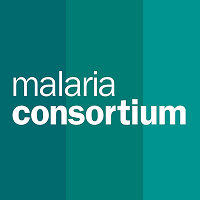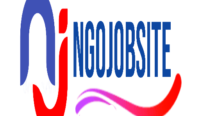
Malaria Consortium, established in 2003 is one of the world’s leading non-profit organisations specialising in the prevention, control and treatment of malaria and other communicable diseases among vulnerable populations. Our mission is to save lives and improve health in Africa and Asia, through evidence-based programmes that combat targeted diseases and promote universal health coverage.
We are recruiting to fill the position below:
Job Title: Data Collector
Location: Osun
Employment Type: Contract
Purpose of Assignment
- Carry out a cost-description of the introduction and roll-out of PMC.
- Conduct a cost-effectiveness analysis of the PMC intervention, including a cost-benefit analysis.
Methology
- The cost analyses will be done from a health systems perspective that entails quantification of what it will cost the Ministry of Health/NMEP to carry out the intervention and focusing on direct costs (medical and non-medical).
- Costing will involve the quantification of inputs and assignment of appropriate resource values; discounting future costs and assigning appropriate annualized costs to capital inputs; and valuing resources when market prices deviate from the actual value of resources. Direct costs will include:
- Capital costs (e.g. Planning costs, Consensus building and meetings, Initial training, Vehicles, Equipment and furniture), and
- Recurrent costs (e.g. Personnel (including additional cost for administering drug), Fuel/Maintenance of vehicles, Office/warehouse rental, Supplies/overheads, and Management cost).
- The data should be used for the cost description, cost-benefit and cost-effectiveness analyses.
Scope of Work
Phase 1: May 2023 – July 2023:
- This will be the formative phase with key activities such as:protocol development, development of costing assumptions, tools development and training on the data elements that should be collected and tools by the project team and determine the periodicity of recording of the data.
- To begin, hold an inception meeting with stakeholders to ask what question on cost do we want to answer? or does NMEP/NPHCDA need to answer for policy decision-making? Would we need to provide costs for the scheduled and unscheduled delivery per child? the additional cost of integrating within EPI and delivery of EPI-only? and then the cost-effectiveness of the different models? All these will be detailed in the protocol in phase 1.
Phase 2: March 2024 – July 2025:
- Data on program resources will be collected from multiple sources including work plans, budgets, and expenditure summaries as categorized below:
- Annual program specific financial report derived from annual (and quarterly) financial reports e.g. those used to report to the funders to cover all of program period usually itemized expenses, including actual payments and potentially earnings.
- Equipment inventory as found in program asset register showing purchased items, price, and date; items not purchased e.g. vehicles and equipment like generators obtained from previous projects will also be included, and their rental value or annualized equivalent with estimate of market purchase will be estimated.
- Donations to project in cash and kind including: volunteer time (paid and unpaid), equipment, test kits, accommodation etc. whose values will be monetized.
- Any other NGO costs from the program but not included in the program financial report.
- Stakeholders’ engagement through Key Informant Interviews (KIIs) to provide additional data not provided from other sources
Phase 3: October 2024 – July 2025:
- Costing analysis will be done for PMC implementation of drug (SP) administration at the health facility during routine immunization and non-immunization visits, while EPI-only cost will be captured from the control arm. Also, costs will be aggregated into startup and maintenance cost to provide further information that will be important for policy decision making. In addition, interphase with Northwestern University (NWU) for the modelling component of the analysis.
Specific Tasks for Data Collectors (6)
Phase 1: May 2023 – July 2023:
- Attend study briefing by the consultant
Phase 2: March 2024 – July 2025:
- Conduct KIIs on cost effectiveness data collection
Phase 3: October 2024 – July 2025:
- Submit typed transcripts of interviews
Qualifications and Experience
- Interested candidates should possess a Bachelor’s Degree with at least 3 years experience.
- Demonstrable track record of similar work in the past five years
- Demonstrated experience in liaising with government; and managing relationship with stakeholders and partners at health financing, budgeting, implementation science, and policy levels.
- Familiarity with cost data collection
- Experience in health financing and budgeting
- Demonstrated experience in health economics
- Fluency in written and spoken English
- Working knowledge of data analysis software package
- Working knowledge of at least one data capture package
- Excellent organizational and time management skills are required.
- Ability to work both independently and as a member of a team and to handle multiple priorities is required
- Excellent analytical, writing, synthesis, communication and facilitation skills.
- Experience of working with partners at international, regional, and national levels.
- Proven academic experience, including pieces of research, publications and written reports
- Familiarity with the Expanded Programme on Immunization (EPI) and malaria programs
- Proven experience in writing reports for public health programs or projects in Nigeria or similar developing country context
Application Closing Date
14th March, 2024; 8:00 AM
How to Apply
Interested and qualified candidates should:
CLICK HERE TO APPLY
Note
- Kindly note that applicants who do not follow this specification will be disqualified.
- Only Shortlisted candidates will be contacted.
- Kindly note that applications will be reviewed on a rolling basis, and as a result, the application process may conclude before the advertised deadline. Therefore, early applications are highly encouraged.
- Malaria Consortium does not accept or ask for payment during recruitment. We also would not accept hardcopy CVs; all applications should be sent through the above link.



